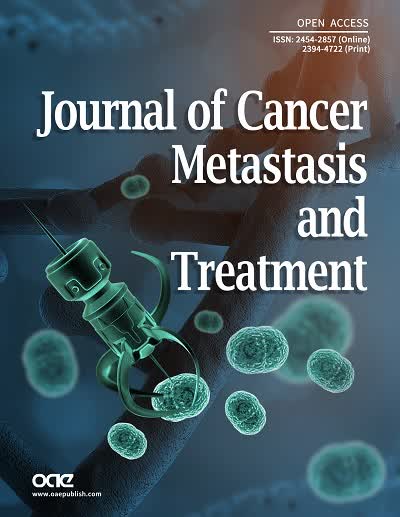Partner's Meeting
 |
Lucio Miele, M.D., Ph.D. | ||
| Professor and Department Head, LSU School of Medicine, Department of Genetics | |||
| Director for Inter-Institutional Programs, LSU Stanley Scott Cancer Center and Louisiana Cancer Research Consortium | |||
| Cancer Crusaders Endowed Professor in Cancer Research | |||
| Phone: | 504-568-8088 (Genetics) | ||
| 504-210-3433 (Cancer Center) | |||
| E-mail: | editor@jcmtjournal.com; lmiele@lsuhsc.edu | ||
Dr. Miele completed his medical training in Italy and his graduate training at the Max-Planck Institute for Molecular Genetics in Berlin. He then completed a fellowship in Human Genetics at the NIH (NICHD). There, he developed: 1) pharmacologically active peptides from human uteroglobin/CC10; 2) novel expression vectors to produce native, clinical-grade disulfide-bonded human proteins and 3) an early version of PCR-ELISA to quantify normal and mutant DNA in patient blood. In 1994, he moved to FDA/CBER as a senior investigator in the Division of Monoclonal Antibodies and member of the Division of Clinical Trials Design and Analysis. He was eventually promoted Acting Chief, Laboratory of Cell Biology. Dr. Miele co-authored the 1997 Points to Consider in the Manufacture and Testing of Monoclonal Antibody Products. At CBER, in 1994, he began working on the then recently discovered human Notch genes. Notch pathway genes control cell fate determination during normal development and adult life, and have major roles in tumor biology, angiogenesis and the immune system. In 1998, Dr. Miele moved to Loyola University's Cardinal Bernardin Cancer Center, where he discovered the anti-apoptotic activity of Notch1 in leukemia cells. At the same time, he created and oversaw a Molecular Pathology Core. In 2001, Dr. Miele moved to the University of Illinois at Chicago, as Program Director in the Cancer Center and Associate Professor of Biopharmaceutical Sciences. At UIC, Dr. Miele determined that Notch1 is necessary for Ras-induced transformation of human cells and is expressed in breast cancer. In 2005, he returned to Loyola, as a Full Professor, Breast Cancer Program Director and eventually, Associate Cancer Center Director for Translational Sciences. In 2009, Dr. Miele was named Director of the UMMC Cancer Institute and Ergon Professor of Medicine. He held that post until his move to LSUHSC. Dr. Miele’s work is devoted to: 1) studies of cancer stem cell-regulatory genes such as Notch, and identification of genetic circuitry mediating Notch signals in human tumors; 2) Correlation between GWAS data and transcriptome for cancer-associated genes; 3) Mechanism-based early clinical trials using genomic biomarkers as correlative endpoints and/or stratification variables. Dr. Miele has authored 195 publications in biomedical journals to date. He has served or serves on numerous grant review panels for NIH, NCI, NCATS, the DOD and foreign research funding agencies from Canada, the UK, Spain, Italy, The Netherlands and Singapore. He serves as Editor or Associate Editor of a number of biomedical journals, and has served as an advisor to several pharmaceutical and biotechnology companies. In his current position he serves as Professor and Department Head at the LSU School of Medicine, Department of Genetics and also serves as Director for Inter-Institutional Programs at LSU Stanley Scott Cancer Center and Louisiana Cancer Research Consortium.
Editorial Foreword: A New Journal for 21st Century Cancer Research
Welcome to the Journal of Cancer Metastasis and Treatment (ISSN 2394-4722), a multidisciplinary journal devoted to basic, translational and clinical research on cancer, with special emphasis on metastatic disease.
The treatment of localized malignancies has dramatically improved over the past few decades, with remarkable progress in early diagnosis, surgery, radiation oncology and pharmacological treatment. As a result, many early stage or localized cancers today can be considered curable. Unfortunately, the same cannot be said of metastatic disease. In most cases, the prognosis of metastatic cancers remains grim, despite heroic interventions. Metastatic cancers often become resistant to most or all the therapeutic tools in our arsenal, and while it is often possible to significantly prolong survival, eradication of metastatic disease is rarely possible and side effects of treatment are significant.
Cancer biology research has shown that the “magic bullet” approach, i.e., the search for a single agent capable of eradicating advanced malignancies, is clearly inadequate. Cancers arising from the same tissue in different patients are genetically heterogeneous, even when their histologic features are similar. Even within an individual tumor there can exist distinct cellular populations with different biological characteristics. Stem-like “tumor-initiating cells” have been described in hematologic and solid tumors. Although their origins remain unclear, and there may be different ways of acquiring “stemness”, these cells are generally more treatment-resistant than non-stem-like cancer cells, and are thought to be a major cause of treatment failure and recurrence.
Clonal selection occurring during disease progression, producing genetically distinct cellular clones within the same tumor, is another possible cause of treatment failure. Clonal heterogeneity had been hypothesized for a long time but is now supported by experimental evidence. Fortunately, thanks to the tremendous progress of biomedical science, we have unprecedentedly sophisticated tools to study the causes, mechanisms and treatments of cancer metastasis. Genomics and bio-informatics are dissecting the mutational landscape, epigenetics and transcriptome of individual tumors and even of single tumor cells. Cancer immunotherapy, after decades of experimental successes in rodent models followed by disappointing results in the clinic, is now beginning to produce clinically effective agents for previously incurable malignancies.
The time is ripe for a new journal devoted specifically to the study of cancer metastasis and experimental therapeutics. The volume of high-quality research produced worldwide in this field and the need to rapidly disseminate it among the global scientific and clinical community are such that we hope our journal will fill an important niche in the cancer research literature. The Editorial Board and I hope you enjoy reading it as much as we enjoy crafting it.







